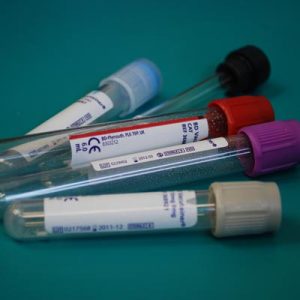RGCC
RGCC test – Cancer treatment

The RGCC blood analysis test examines the circulating tumour cells and cancer stem cells, and as such represents a substantive step towards personalised cancer therapy.
On the basis of the analysis results obtained, we are able to decide in consultation with you on the best approach for your personalised cancer treatment, with a view to obtaining the best possible results of treatment.
RGCC with specific analysis for personalised cancer treatment has been responsible for enormous advances in cancer survival rates all over the world.
The RGCC-test was developed to enable a determination of what kind of cancer treatments will serve each individual patient best.
By applying the most advanced and innovative technologies available in molecular and cell biology, the RGCC is able to overcome problems that made the analysis of CTCs (Circulating Tumor Cells) and CSCs (Circulating Stem Cells) so difficult before.
The extensive data and information obtained from these are mainly helpful for identifying new target molecules that are significant for the disease.
But they can also be used in clinical practice for new and precise test procedures such as risk assessment or classification of cancer patients.
The RGCC lab test can be used for testing in conjunction with options from conventional and alternative medicine.
The following therapy options can be evaluated in the RGCC lab, for example.
1. Chemo-agents:
Cisplatin, Carbonplatin, Cyclophosphamide, Ifosphamie, Dacarbazin, Oxaliplatin, Mitomycin, Melphalan, Treosulfan, Temozolomid, Procarbazin, BCNU, ACNU, CCNU, Bleomycin, Trophosphamid, Estramustin, Bendamustin, Doxorubicin, Liposomal, Epirubicin, Daunorbicin, Dactonomycin, Ironetecan, Topotecan, Idarubicin, Paclitaxel, Docetaxel, Vinblastie, Vinorelbin, %FU, Methatrexat, Gemcitabine, Capecitabine, Etoposide, Mitaxantrone, Floxuridine, Uracil-Tegafur, Ralitrexed, Pemetrexed.
2. Targeted substances
(with constantly rising tendency) including monoclonal antibodies and low-molecular inhibitors:
Cetuximab, Rituximab, Transtuzumab, Imatinib, Mesylat, Coxibs, Monteleucast, Tamoxifen, Raloxifen, Leprolid, Anastrozol, Bevacizumab, Suramin sulphate, mTOR-inhibitors, Sorafenib and Sunitinib, Bortezomib as well as Thalidomide (antiangiogenetic, apoptosis initiator) test of signal paths regarding mutations downstream.
3. Immunomodifers
IL-2, IFN, Cortisol
4. Biomodifiers
Resistance mechanism inhibitors:
Disulfiram, Verapamil, Ketaconazol, 5-Azacytidin.
A genetic profile of the CTCs is produced together with other possible significant targets, such as NFkβ, also hormone receptor status and heat shock proteins (HSP 27, HSP 90 and HSP 72).
5. Natural substances / Dietary supplements:
High-dose vitamin C, Poly MVA, Carnivora, Quercetin, Indole 3 Carbinol, Mistel, C Statin, Ukrain, H2O2, Coenzyme Q10, Essiac tea, modified citrus pectin, IP6, Pancreatic enzymes, Salvestrole, Uncaria Tomentosa, Cawsium chloride, Carctol, Noni juice, Annonaceae Acetogenine, Reolysin, B17, Maitake, Curcumin, Lycopene, Green tea extract, Artesunate, Melatonin, Ellagic acid, L-Methionine, N-acetyl cysteine, Niacin, L-Carnitin, Vitamin E, Superoxide dismutase, Aloe vera, Selenium, IFNa2, Propolis, CV247, Avemar powder.

